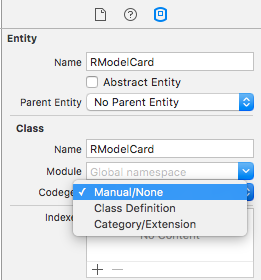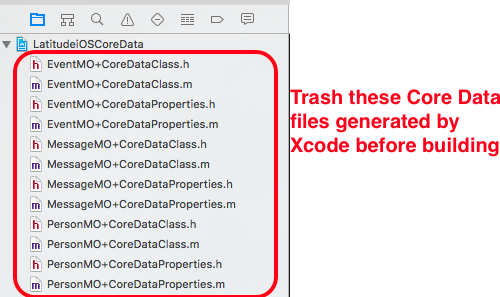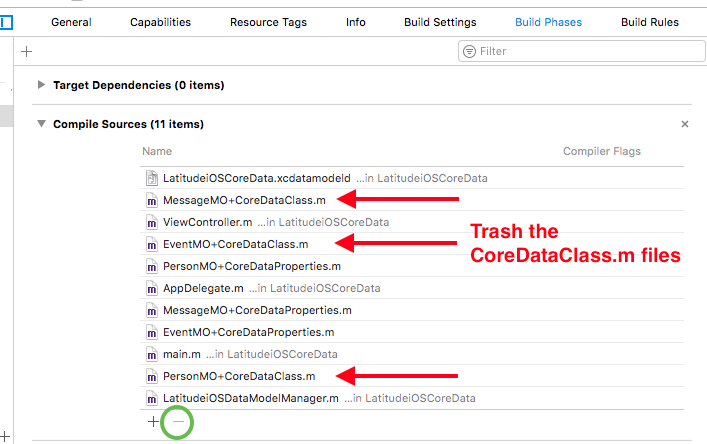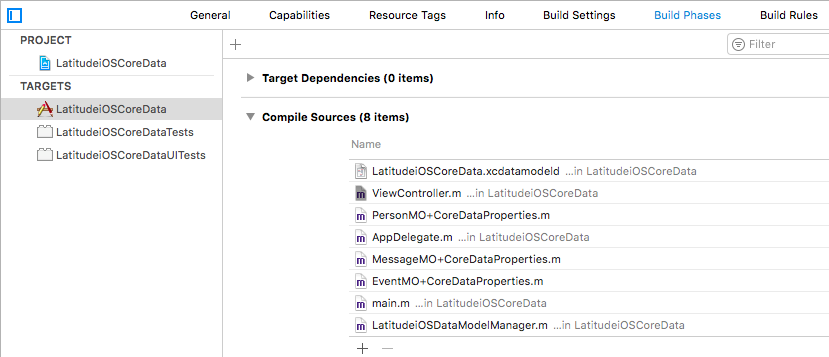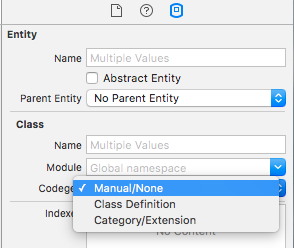I was trying to create NSManagedObject subclasses (2 related entities) automatically in Xcode. They are generated like this:

However, before I do anything further, when I tried to build and run it, a link error occur, as shown:
duplicate symbol _OBJC_CLASS_$_Photo in:
/Users/Kefeng/Library/Developer/Xcode/DerivedData/Photomania-aellrakjngugnzcgrleiytvrfvyt/Build/Intermediates/Photomania.build/Debug-iphonesimulator/Photomania.build/Objects-normal/x86_64/Photo+CoreDataClass.o
duplicate symbol _OBJC_METACLASS_$_Photo in:
/Users/Kefeng/Library/Developer/Xcode/DerivedData/Photomania-aellrakjngugnzcgrleiytvrfvyt/Build/Intermediates/Photomania.build/Debug-iphonesimulator/Photomania.build/Objects-normal/x86_64/Photo+CoreDataClass.o
duplicate symbol _OBJC_CLASS_$_Photography in:
/Users/Kefeng/Library/Developer/Xcode/DerivedData/Photomania-aellrakjngugnzcgrleiytvrfvyt/Build/Intermediates/Photomania.build/Debug-iphonesimulator/Photomania.build/Objects-normal/x86_64/Photography+CoreDataClass.o
duplicate symbol _OBJC_METACLASS_$_Photography in:
/Users/Kefeng/Library/Developer/Xcode/DerivedData/Photomania-aellrakjngugnzcgrleiytvrfvyt/Build/Intermediates/Photomania.build/Debug-iphonesimulator/Photomania.build/Objects-normal/x86_64/Photography+CoreDataClass.o
ld: 4 duplicate symbols for architecture x86_64
clang: error: linker command failed with exit code 1 (use -v to see invocation)
I tried several times by creating new projects and do the same thing. My original intention is to add some custom methods into those to subclasses. But when I add anything into e.g. Photo+CoreData.h/m, the same error as above showed up.
I found some answers about the "double include" or "save files to the wrong directory", but I didn't do that. Anybody have any idea about this?

